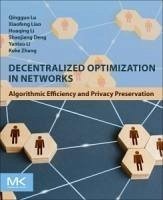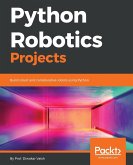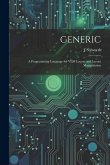Decentralized Optimization in Networks: Algorithmic Efficiency and Privacy Preservation provides the reader with theoretical foundations, practical guidance, and solutions to decentralized optimization problems. The book demonstrates the application of decentralized optimization algorithms to enhance communication and computational efficiency, solve large-scale datasets, maintain privacy preservation, and address challenges in complex decentralized networks. The book covers key topics such as event-triggered communication, random link failures, zeroth-order gradients, variance-reduction, Polyak’s projection, stochastic gradient, random sleep, and differential privacy. It also includes simulations and practical examples to illustrate the algorithms' effectiveness and applicability in real-world scenarios.
Bitte wählen Sie Ihr Anliegen aus.
Rechnungen
Retourenschein anfordern
Bestellstatus
Storno








